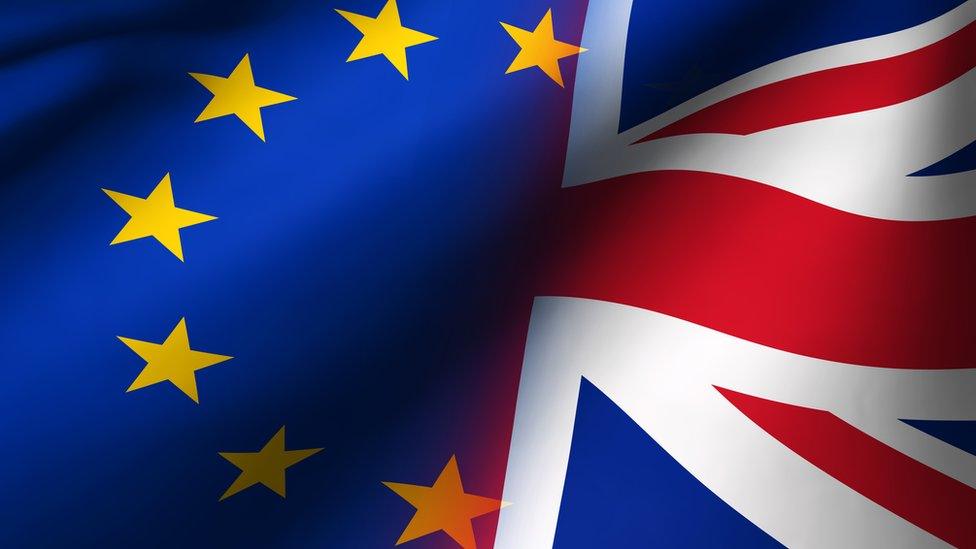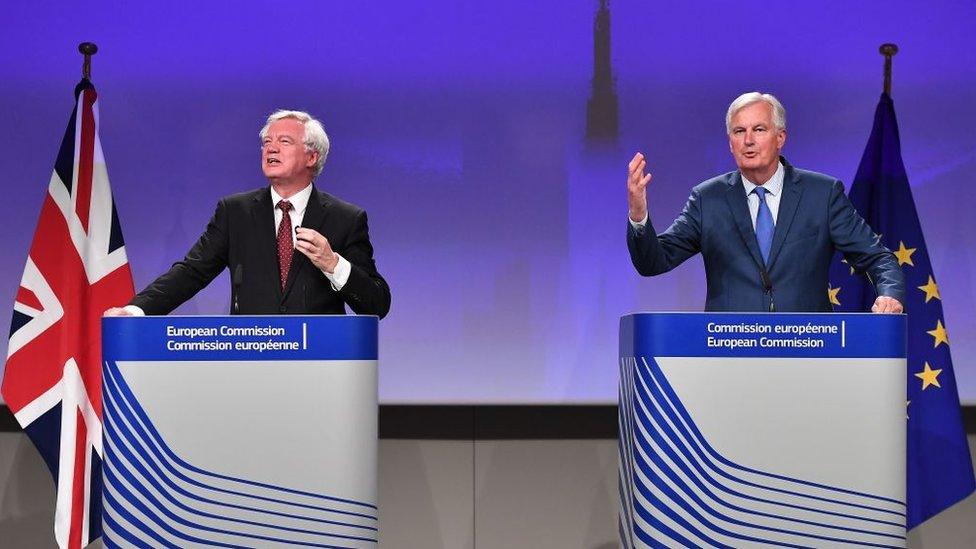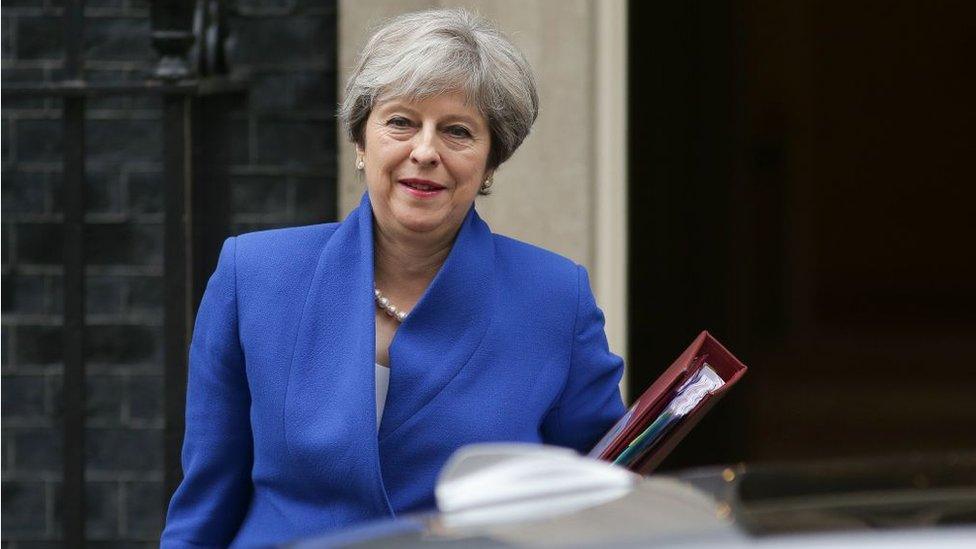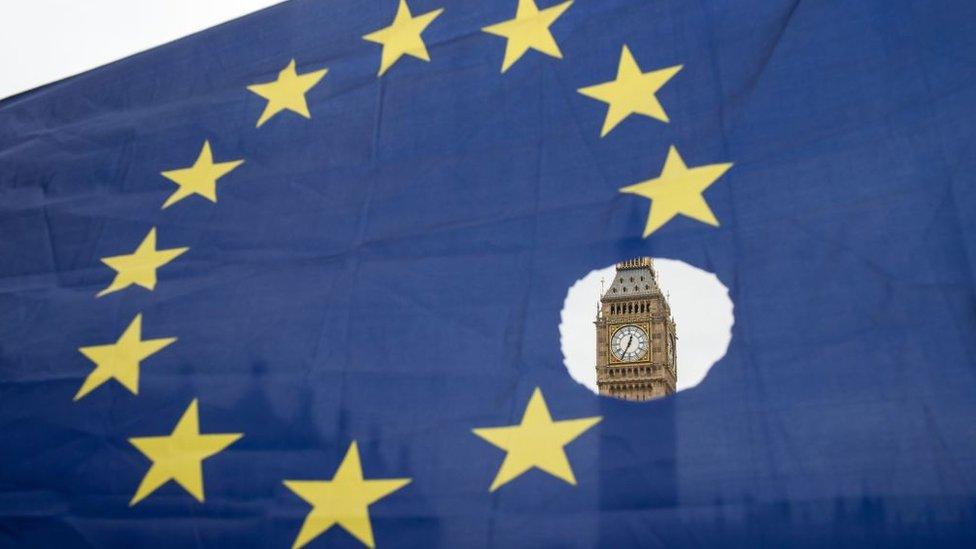Reality Check: Brexit catch-up
- Published

Summer's over (was it ever really here?), but the Brexit process rumbles on. If you've spent the past few weeks on the beach, or hiking in the Swiss Alps, here's a brief reminder of what you've missed.

The negotiations
Talks between the EU and UK negotiating teams continue.
A second round in July was followed by a third in August. Both of them ended with press conferences that made it easier to see what was going wrong than what was going right.
There have been agreements on some technical points, but the chief EU negotiator, Michel Barnier, said last week that there had been no decisive progress on any of the main issues.
The UK's Brexit Secretary, David Davis, said the EU needed to start thinking about people not process.

Secretary of State for Exiting the European Union (Brexit Minister) David Davis (left) and EU chief Brexit negotiator Michel Barnier

The main problem
At the moment, the main problem is money, which is hardly a surprise.
The UK wants the bill for its financial obligations on exit to be as low as possible.
All the other countries in the EU want it to be as high as possible. Because when the UK leaves, there will be a hole in the EU budget and they will have to cover the shortfall.
The current dispute surrounds how to calculate any bill.
The EU says the UK has made a series of big financial commitments, some of which will continue after Brexit, and they have to be met.
The UK says that in most areas it is only annual budgets that count, and it doesn't plan on subsidising other countries once it is no longer in the club.

The government's position on Brexit
The government has released a series of position papers on various aspects of Brexit over the past few weeks, anxious to blunt any criticism that it is moving too slowly.

Papers on future customs arrangements, and on the border between Northern Ireland and the Republic of Ireland, were notable, although the President of the European Commission, Jean-Claude Juncker, raised hackles by declaring that none of the British papers was "satisfactory".
While Theresa May was away on holiday, various government ministers engaged in a public debate about how Brexit should work in practice.
Government policy is now that the UK will leave the single market and the customs union on the day of Brexit, but that it will try to replicate existing customs arrangements during a time-limited transition period.

The Labour Party's position on Brexit
Labour's position on Brexit changed in mid-August, when the shadow Brexit secretary, Sir Keir Starmer, announced that the party now wanted to keep the UK in the single market and a customs union during a transition that could last for up to four years.
Labour would also accept free movement of people, payments into the EU budget and the jurisdiction of the European Court of Justice during the transition.
This is a considerably "softer" version of Brexit than the one advocated by the government, but there are still divisions within the party about whether the UK should try to stay in the single market in the longer term.

The EU's position on Brexit
Tick tock.

Parliament is set to debate EU withdrawal

Next up in London
The EU Withdrawal Bill gets it second reading in the House of Commons this week, with voting next Monday.
The bill will repeal the legislation that took the UK into the European Economic Community in 1973, and transpose thousands of pieces of EU legislation into UK law.
More position papers are also promised for the negotiations (there will be one on 6 September on the UK's relationship with EU science and research projects).
And crucially, sometime in the autumn, government White Papers are due to be published on trade, customs and immigration.
They will start to put meat on the bones of how the UK will engage with the EU and the rest of the world after Brexit.

Next up in Brussels
Two more rounds of negotiations are planned in the weeks beginning 18 September and 9 October, but both sides have now suggested that they are prepared to step up the pace of negotiations before a summit of EU leaders in Brussels on 19-20 October.
That is when the other 27 countries will have to decide whether "sufficient progress" has been made on separation issues - the financial settlement, citizens' rights and the Irish border.
If they say yes, negotiators will be able to move on to talk in parallel about the future relationship between the EU and the UK, with a particular focus on trade.
If they say no, prepare for late nights, bad tempers and angry headlines. Welcome back.



- Published30 December 2020

- Published31 August 2017
